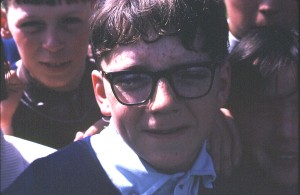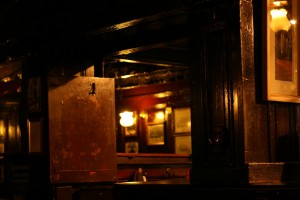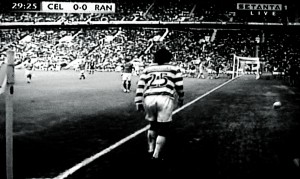
When I think about it, I realise that sectarianism has been a considerable presence in my life. It has always hummed in the background, making a faint but unmistakeable racket that I usually tune out. But after the first time I heard it, I couldn’t stop hearing it.
For those unaware, sectarianism has been an issue in Glasgow, and Scotland as a whole, since the 19th century. Scotland had become a largely Protestant country, and when Irish Catholic immigrants moved to Glasgow for work, rivalries between the two religious communities began to spring up. These issues have lasted to this day, and are particularly dominant in poorer areas of the city.
These tensions are not helped by elements like the Orangemen of Glasgow. Part of the Protestant Orange Institution, they hold parades throughout the summer to celebrate the 1690 victory of the Protestant King William of Orange against the Catholic King James II of England and Ireland at the Battle of the Boyne. (Yes, you read that right, this was over 300 years ago and they’re still celebrating.) In fairness, other religious groups march in the city as well. They just don’t take up quite so much space or time, and don’t do it as frequently.

It started with lies. He convinced the teachers that I’d stolen from him and I was told off. After that, it escalated to him following me and my friends (let’s call them Monica and Phoebe) around, threatening us and calling me names, out of sight of the teachers and other children. We never failed to tell him to leave us alone, and I tried to stand up for myself, but in the end he was “special” and I was afraid to go too far. Also I was convinced if I swore I’d go to Hell, a fear he didn’t seem to share, so my insults lacked punch.
One day, Monica and I were hanging around in one of our usual spots, when he came up and started mouthing off. Something I said (I don’t remember what) tipped the situation, because Ben swung one of his large, steel-toe-capped boots up and kicked me squarely between the legs.
I had never known pain like it. I was tiny, that boot was bigger than the area he’d just rammed it into, and I was blindingly furious. So I said a bad word. Two, actually. I said, “You fucking bastard!”
He ran away, and Monica helped me limp to the school nurse. I came home that night very quiet and upset. To me, I’d been violated in a place people weren’t supposed to see or touch and I didn’t have the nerve to tell my parents.
The next day the pain wasn’t as bad, but I noticed things were odd at school. I was getting dirty looks in the corridors, and other kids who were usually fairly friendly were ignoring me. At lunchtime, I was walking down a flight of stairs when a girl I was pals with stopped me on the landing. “I heard what you said,” she spat out, “and I just want you to know my whole family is Catholic.”
I was taken aback, and replied, “So’s mine.” She looked at me, confused and annoyed, and walked away. I got on with my day, trying not to limp.
In the afternoon, I was called to the Deputy Head Teacher’s office and sat there facing him and my guidance teacher. I was told that Ben had made an accusation against me, an accusation he had apparently shared with most of the school before telling the teachers. “He says you called him a Fenian bastard.”
I now know that “fenian” is a derogatory term for Catholics. It comes from an organisation called the Fenian Brotherhood. Formed in 1858 in the US, the Brotherhood launched attacks and raids in England and Canada in the hope of prompting an uprising that would lead to full Irish independence. They didn’t succeed, and disbanded in 1880.
At the time I didn’t know what a Fenian was, and said so. I told them that he’d been picking on me, that he’d kicked me between the legs and it really hurt, and that I didn’t want to tell because he was different. I still remember looking down, my voice getting quiet as I mumbled, “I didn’t call him that, I called him a fucking bastard.”
I wanted to melt through my chair. I’d had to say the bad words in front of teachers! And, above and beyond that, I was absolutely furious. Tears were pressing behind my eyes and my face burned red as the injustice washed over me. I hadn’t done anything! He picked on me and lied about me and now I was in trouble and my special place still hurt!
The teachers, upon hearing my version of events, mumbled a fair bit themselves. I was mildly told off for not saying anything sooner and sent home. So home I went, crying and upset. I asked my dad, “What’s a Fenian?” He laughed and asked where I’d heard a word like that, and I told him everything.
When I was young, there were times when my parents looked at each other and I just knew someone was in trouble. There was the eye contact, and then the raising of eyebrows and the pursing of lips from my mum, followed by the set jaw and glower from my dad. My father picked up the phone and calmly, politely, made an appointment to see the Deputy Head the next day. I started to fear a little for my teacher, but luckily my mum couldn’t go to the meeting. My dad is not one to be trifled with, but my mum would put the wind up Satan himself on a bad day.
I sat next to my dad in the office as the charges were read out. “Ben says Mary called him a Fenian bastard, Mr Dowds. You can understand, this is serious.”
Dad laughed. “Our family is Catholic. That’s not even an insult to us. Mary had to come home last night – very upset – and ask me what the word meant. And leaving that aside, he still shouldn’t be kicking wee lassies between the legs.”
I remember a bit more mumbling (there had been far too much discussion of my private area over the last few days), and my father’s final say on the matter. He made it clear that if Ben was not punished, my parents would contact the police. He also suggested that if the boy couldn’t stop himself hurting other children, he shouldn’t be around them.
I don’t remember getting an apology, but Ben never picked on me again. He tried to come up to me and Monica once, I think on instructions from his own parents to say he was sorry. I threatened him with a big stick and told him to leave me alone, and thankfully, he did.
Thinking about it as an adult, I’m baffled that the school’s faculty still held on to my supposed crime as the greater offence even after they learned I’d been assaulted. My family and I weren’t especially active, as Catholics go. We went to church, but that was it. It’s not like Catholic schools had entrance criteria back then; there were plenty of kids in my primary and secondary classes who weren’t Catholic, or at least didn’t come from practising families. So it was easy for my teachers to assume that my family was Protestant, and that I was bringing sectarian hatred to school and throwing it at a boy with learning difficulties. Even with my shyness, my good behaviour, my class pet inclinations, and my excellent attendance record, one supposed slur was enough to brand me a troublemaker.
I wonder, sometimes, what would have happened if the word hadn’t been “Fenian”. I barely got told off for saying “fucking”, after all, and that’s pretty salty for a twelve-year-old bookworm. That word, I learned then, was a hot button. I never wanted to press it, or be accused of pressing it, again.

In my late teens I had started going out to pubs and had taken on a summer job that involved a fair bit of manual labour. And it was there that this word, along with a lot of others, cropped up again. I got to hear my work colleagues and random idiots on nights out talk about “lazy, stupid Catholics”, and discuss how those “Fenians” were all crooks. I once pointed out to a colleague that my family was Catholic, and he just shrugged at me. When I was twelve, that statement had changed the whole conversation. Now, it meant nothing. He was still going to insult Catholics, and I could put my fingers in my ears and whistle “Ave Maria” for all it mattered to him.
When I was sixteen, one idiot boyfriend (he lasted about a week) told me that his family might not like that I was Catholic. At that point I had not only lapsed, I had sprinted in the opposite direction, but the stain of the holy water that had been poured on my head was, apparently, indelible. I kept my mouth shut then, and I found myself keeping it shut more as time went on. I remember the night Pope John Paul II died; I was in a bar with my boyfriend “Ross” and a group of his friends. All I could think about was how my grandmother, who passed when I was fourteen, had loved His Holiness. I got a little upset, but I got more upset when one of the boys we were with laughingly raised a glass, saying, “Hurray, the Pope is dead!” Why was it acceptable to celebrate the death of a sick old man? I tried to tell him off, but no one seemed to care.
When I was 19 I moved back to the West Coast to go to university. Funnily enough, considering that this part of the country is considered a cesspit of sectarian hatred, there were no incidents after that. Words like “Fenian” and “Proddy” are carefully and rarely used here, with the awareness that they could cause serious (and let’s not sugarcoat it, fatal) offence to someone listening. I hear these words in passing, but I don’t stick around to see what happens. At least on the West Coast the bigotry is discussed, acknowledged, and criticised. On the East Coast it is ignored, and everyone pretends it is only a problem in Glasgow.
Sectarianism has mostly faded into the background again, although it did rise up, in a very positive way, a couple of years ago. A friend from university offered me the chance to teach some scriptwriting classes on the Gie’s Peace project, an initiative run by the Inverclyde Community Development Trust. During that project, I realised that sectarianism had soaked into the lives of the people there, just as it had mine. The difference was that they were actively trying to do something about it. I heard various viewpoints; one man felt that denominational schools were the problem, while others blamed most of it on football. I also became acquainted with a wonderful charity called Nil by Mouth, which works tirelessly to combat sectarianism and the violence it causes.

Right now, sectarianism does two things. It lingers in the background, humming away, and it annoys me on weekend mornings during Orange marching season. And if anyone is planning to say that the Orange march isn’t about sectarianism or religion, spare me. I live in Glasgow, and 99% of the city dreads the marches and the brawling idiots that go along with them. The Orange march blocks off traffic and fills pubs and cafes with idiots wearing Union Jacks around their shoulders, and it leaks onto the rest of summer and leaves stains. Glasgow is a tense place to be on march days, and many people who live here actively avoid the city centre so they don’t have to deal with the inconvenience.
When I talk to people for whom sectarianism is not a noise, even in the background, my anger confuses them. One friend asked why I thought someone wearing a Union Jack over their shoulders during the fevered days immediately before the Scottish independence referendum was a bad idea.
“Because it is,” I said. “Because around here, that means you’re looking for a confrontation. It ties in too closely with the Orangemen and the Old Firm nonsense, and you never see it unless a fight’s about to break out.” The next day, the Yes and No voters started brawling in George Square, hyped up by the result of the vote and the Orange march held that day. Sometimes I hate being right.
Sectarianism doesn’t ruin my city. It doesn’t ruin my country either, and it certainly doesn’t ruin its people. But it’s always there in the background, that hum. It’s not overpowering, and it’s getting quieter. But it’s still there. I wish I’d never heard it.


–First background photo, candles and crosses at Holy Cross, Crosshill, Glasgow by Charles Clegg
–Second background photo, mural on porch, New Kilpatrick Parish Church, Bearsden by Charles Clegg
–Third background photo, “Let Glasgow Flourish, Botanic Gardens, Glasgow by Charles Clegg
–First foreground photo, “Easterhouse Kids,” by Phillip Capper
–Second foreground photo, a saloon in Glasgow, Òscar Vilaplana
–Third foreground photo of TV, Old Firm match in Glasgow, by Eamon Curry